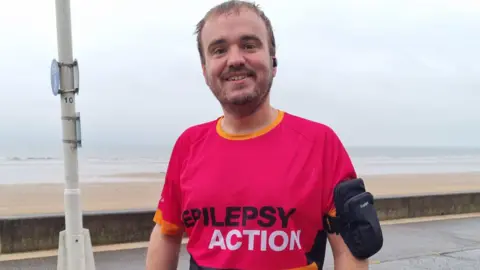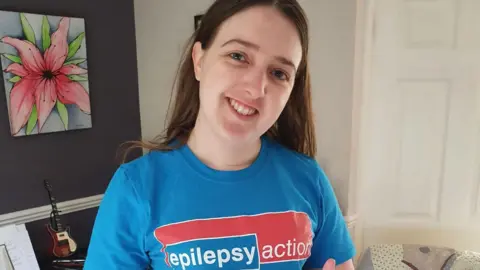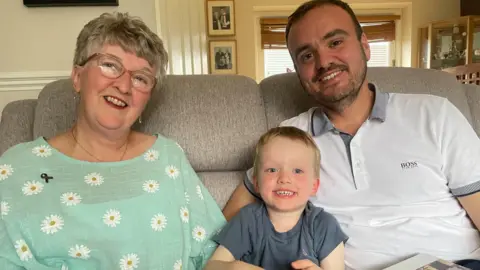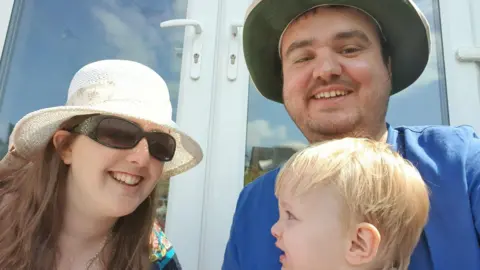Widower continues wife's epilepsy charity legacy
 Supplied
SuppliedA widower from Rotherham has said he is determined to continue his wife's legacy raising awareness about the dangers of epilepsy, a year on from her death.
Jo Scott died in May 2024 of sudden death in epilepsy syndrome, a rare disorder affecting about one in 1,000 people with epilepsy.
Craig Scott said that before her death, his wife had campaigned for the charity Epilepsy Action, but often found people did not take the illness seriously, something he said "must change".
Mr Scott said: "I want to get the message out there that this isn't trivial. This is serious."
He said his wife had "fought to give epilepsy a fair hearing, but I don't think people really appreciated it".
"After what's happened, it's now very difficult to argue with," he added.
 Supplied
SuppliedMs Scott suffered her first epileptic seizure at school at the age of 12 while she was in front of a computer screen.
She was later diagnosed with photosensitive epilepsy, also known as visually sensitive epilepsy, a condition where seizures are triggered by flashing or flickering lights.
At 16, she also developed juvenile myoclonic epilepsy, a common form of epilepsy characterised by sudden muscle jerks.
According to Ms Scott's mum, Cairon Turner, it was a "frightening experience" for her daughter, but it never stopped her.
"She was a whirlwind and did everything she wanted to. She went on music tours abroad with school, she even went with her friend to Spain after GCSEs," she said.
Ms Turner said the prospect that epilepsy could end her daughter's life was something that she had considered, but refused to dwell upon.
"It's always at the back of your mind," she explained.
"Each time she had a seizure it was there, but we never spoke about it.
"A number of times we had the call and came tearing down here to her home and I wondered what we would find."
 Simon Thake/BBC
Simon Thake/BBCMr Scott, who works on the railways, said that since his wife's death he had been forced to take on the role of sole parent for his three-year-old son.
He admitted that the "responsibility can weigh heavily" at times.
"It can be relentless. I still have to work full time and you can never switch off. Others can help but the buck stops here: he's my son," he said.
"I'm very aware he's already gone through such a lot, and making sure his life is the best it can be is now the most important thing to me."
Mr Scott said he had gone on his own fitness journey in a bid to raise money for Epilepsy Action, losing four stone (25kg) in the process.
He said he also regularly ran 10 miles (16km) and swam three times a week, and planned to take part in The Great North Run to raise money for the charity in September.
"I'd rather I wasn't in this position," he said.
"But I feel a responsibility to carry on Jo's work and to try and get that message out there that this isn't trivial, this is serious, and it needs to be better understood."
He added: "What I am trying to do is to do all I can to stop other families going through this."
 Supplied
SuppliedEpilepsy Action primarily supports people with epilepsy with a helpline and also offers a befriending and counselling service.
Rebekah Smith, the charity's CEO, admitted that "raising awareness without scaring people unnecessarily" was important.
"People can die from epilepsy, but it is still rare," she said.
"About 600,000 in the UK have epilepsy and every day three people die from sudden unexpected death in epilepsy - so that is something people need to be aware of."
However, Ms Smith acknowledged epilepsy was still a mystery condition for many people.
"Because it's actually a range of conditions, people don't always take it as seriously as they should," she said.
"People know about flashing lights, but that's really only one small percentage."
Listen to highlights from South Yorkshire on BBC Sounds, catch up with the latest episode of Look North
